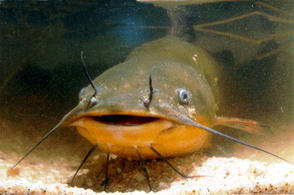 Shillong, Oct 8: The discovery of a South American sucker-mouth armored catfish at the picturesque Umiam Lake near here has baffled not only local fishermen but scientists alike in Meghalaya.
Shillong, Oct 8: The discovery of a South American sucker-mouth armored catfish at the picturesque Umiam Lake near here has baffled not only local fishermen but scientists alike in Meghalaya.
Native to the Amazons and South American rivers, the catfish was caught by a local fisherman on September 24 and since then he has kept it in a tub of water.
The 500 gm captured specimen is the first documented record of such an adult or near adult fish of the species captured from open waters of the North East region, particularly in Meghalaya, a scientist at Zoological Survey of India here told PTI here.
According to scientists here, the specimen is native to Orinoco River basin in Venezuela but has been recorded to have been found in fresh waters in Hawaii (called the long-fin armored catfish), in the USA (called sailfish catfish), China and Philippines where it was called a janitor fish.
The species was reported from south India as introduced species and cultured in lakes, streams and other water bodies and was found to be highly invasive in nature.
The dark brown tropical fish with its beautiful sail-like dorsal fin is a common import for aquariums all over the world, fish experts at the North Eastern Hills University said.
This could be a theory to believe as to how the fish got into Umiam lake, they said. "Someone might have found the fish too big for their aquarium and let it directly into the water body where it thrived and found its way to the lake."
On the fish's impact on local eco system, scientists concluded that it may become invasive in future as exotic species have the tendency to compete with the native species.
"Being armed with spines and hard shell-like body structure, it may affect the native species," the scientists said.
In its native habitat in South America, the fish species inhabit freshwater streams and lakes and in weedy, mud-bottomed canals and commonly browse on substrate, mainly feeding on benthic algae and aquatic weeds.
It also feeds on worms, insect larvae and other bottom-dwelling invertebrates as food, the scientists added.





Comments
Add new comment